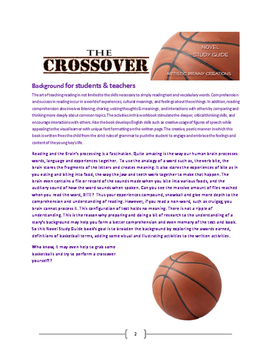
Well, I didn't have to think or try to hope the audience would get that on screen, because you're going to see it, and you're going to hear it. In the book, I played with words visually, the way they looked on the page, so that I could mirror how they would sound. We knew that we were going to play with words, both orally and visually. Kwame Alexander: We didn't know that was the exact style. Did you know from the start that you wanted to go with this style? You superimposed text over a lot of the scenes, whether it was introducing a character or giving a definition. But once we got into the groove, and figured out how to make that braid work, we were good to go.ĭamani Johnson: We were also blessed because Kwame had such a beautiful world that we could play in and really expand upon like he said-some of the ideas that are beautiful in the book, and just take them to the highest level and visual level that we could find. Kimberly Harrison: I would say the poetry on the page was a little challenging for us at times and just kind of weaving that in with the scenes. You incorporate verse into the show as well, but what were some of the challenges of making this screenplay? I imagine there must have been a lot of details you had to enhance. You’ve turned a novel that’s written in verse into a full series. I think we turned out a really amazing project that extends, expands, and enhances what I started on the page in a really beautiful and magical way, now on the screen. It was interesting to go from this very solitary process of creativity to this very collaborative community of creativity.

And then I spent another five years working in a writers room, working on set with a hundred people.

I spent five years in a Panera Bread writing the book by myself, listening to jazz music. Screen Rant: Kwame, congratulations on your book being adapted into a television show.


 0 kommentar(er)
0 kommentar(er)
